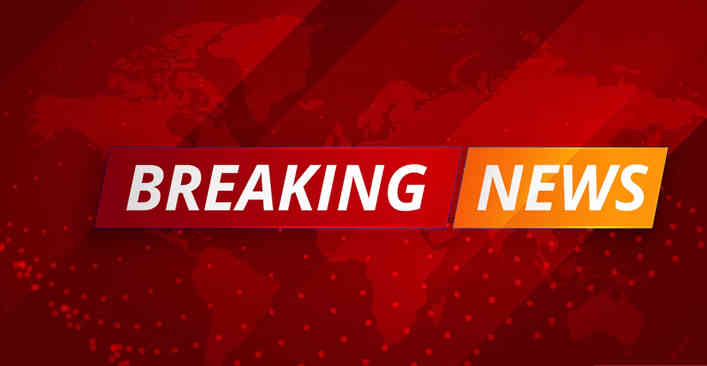Boko Haram Overruns Nigerian Army Base in Borno, Kills, Captures Soldiers
- Advertisement -
ISWAP Fighters invade 153 Task Force Battalion in Marte; Military Equipment Looted
Borno State, Nigeria — In a fresh escalation of violence in Nigeria’s northeastern region, suspected Boko Haram insurgents, operating under the Islamic State West Africa Province (ISWAP), have attacked a Nigerian Army base in Marte Local Government Area, killing and capturing several soldiers. The assault, which occurred in the early hours of Monday, has sparked concern over worsening security conditions in Borno State.
- Advertisement -
According to multiple credible sources from within the military and local residents, the forward operating base (FOB) of the 153 Task Force Battalion came under heavy attack at around 3:00 a.m. The insurgents reportedly approached the base under the cover of darkness, catching the troops by surprise.
How the Attack Unfolded
Eyewitnesses and security informants who spoke on condition of anonymity disclosed that the troops stationed at the base were overpowered after a fierce gun battle, which lasted several hours. During the exchange, multiple soldiers were killed, others captured, and several others forced to flee the area.
- Advertisement -
“ISWAP fighters completely overran the base. Many soldiers have been reported missing, while others ran toward Dikwa for safety. The terrorists looted weapons and burnt military vehicles,” a military source confirmed.
Reports also indicate that armored vehicles and military-grade weapons were carted away by the attackers. The base was reportedly set ablaze after being emptied of arms and ammunition.
Troops Dislodged, Flee to Dikwa
- Advertisement -
Following the attack, fleeing soldiers regrouped at the 24 Task Force Brigade base in Dikwa, which lies approximately 38 kilometers from Marte. Sources in Dikwa told journalists that residents were awakened by distant gunfire, followed by the roar of fighter jets flying low over the area — indicating a possible aerial reconnaissance or immediate counterattack operation by the Nigerian Air Force.
Casualties and Tactical Implications
As of the time of filing this report, the Nigerian Army has not issued an official statement confirming the death toll or the number of troops captured. However, security analysts suggest that the capture and killing of soldiers at a key forward base could undermine troop morale and hinder military operations in the Lake Chad axis, which has remained a hotbed of insurgency.
The fall of the Marte base represents a strategic loss, given its location near key operational corridors and its historical vulnerability to insurgent attacks.
Community Impact and Growing Tension
- Advertisement -
Residents of nearby towns, including Dikwa, expressed fear and uncertainty about their safety. A local community leader, speaking anonymously, said:
“We don’t know what will happen next. Some civilians have already started leaving the town in fear of another attack. The military presence is high, but people are terrified.”
There are growing concerns that the ISWAP faction of Boko Haram is increasingly emboldened, carrying out attacks with greater precision and force. This latest incident underscores the ongoing challenge the Nigerian government faces in its effort to end the insurgency that has lasted more than a decade.
Recent Surge in ISWAP Attacks
The attack on the Marte base is the latest in a series of targeted assaults by ISWAP on Nigerian military infrastructure. Over the past six months, the group has intensified its operations, targeting military convoys, checkpoints, and bases in Borno, Yobe, and parts of Adamawa states.
Just last month, another forward base in Baga came under attack, with similar outcomes of troop fatalities and stolen military hardware.
Security analysts suggest that ISWAP has better organizational structure and firepower than its parent faction led by the late Abubakar Shekau. The group’s focus on military targets rather than civilian mass killings marks a strategic shift in its operations.
Government and Military Response
As of now, neither the Nigerian Ministry of Defence nor the Chief of Army Staff has publicly addressed the attack. However, sources indicate that reinforcements have been deployed, and an investigation is underway.
There are also reports that the Nigerian Air Force has begun aerial surveillance missions in and around Marte to track and neutralize the fleeing insurgents.
Meanwhile, calls are growing louder from civil society organizations and human rights groups demanding that the federal government act decisively to secure military bases and protect both military personnel and civilians in the northeast.
A Call for National Security Overhaul
This latest attack raises fundamental questions about military intelligence, resource allocation, and strategy coordination in counter-insurgency operations. Experts have long argued that better funding, training, and intelligence-gathering are essential to defeating the insurgency.
Furthermore, there have been growing concerns over low morale among troops, delayed salaries, and insufficient logistics support — all of which may be contributing factors to repeated lapses in military readiness.
What you should know
The assault on the Nigerian Army base in Marte serves as a stark reminder that the battle against Boko Haram and ISWAP is far from over. As the Nigerian military regroups and reassesses its tactics, citizens continue to bear the brunt of a prolonged and deadly insurgency.
The federal government, in collaboration with international partners, must act with urgency and resolve to prevent further loss of life and territorial control in the embattled northeast region.
- Advertisement -


